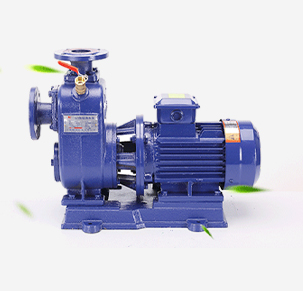Belarusian
- Afrikaans
- Albanian
- Amharic
- Arabic
- Armenian
- Azerbaijani
- Basque
- Belarusian
- Bengali
- Bosnian
- Bulgarian
- Catalan
- Cebuano
- Corsican
- Croatian
- Czech
- Danish
- Dutch
- English
- Esperanto
- Estonian
- Finnish
- French
- Frisian
- Galician
- Georgian
- German
- Greek
- Gujarati
- Haitian Creole
- hausa
- hawaiian
- Hebrew
- Hindi
- Miao
- Hungarian
- Icelandic
- igbo
- Indonesian
- irish
- Italian
- Japanese
- Javanese
- Kannada
- kazakh
- Khmer
- Rwandese
- Korean
- Kurdish
- Kyrgyz
- Lao
- Latin
- Latvian
- Lithuanian
- Luxembourgish
- Macedonian
- Malgashi
- Malay
- Malayalam
- Maltese
- Maori
- Marathi
- Mongolian
- Myanmar
- Nepali
- Norwegian
- Norwegian
- Occitan
- Pashto
- Persian
- Polish
- Portuguese
- Punjabi
- Romanian
- Russian
- Samoan
- Scottish Gaelic
- Serbian
- Sesotho
- Shona
- Sindhi
- Sinhala
- Slovak
- Slovenian
- Somali
- Spanish
- Sundanese
- Swahili
- Swedish
- Tagalog
- Tajik
- Tamil
- Tatar
- Telugu
- Thai
- Turkish
- Turkmen
- Ukrainian
- Urdu
- Uighur
- Uzbek
- Vietnamese
- Welsh
- Bantu
- Yiddish
- Yoruba
- Zulu
Telephone: +86 13120555503
Email: frank@cypump.com
жнів . 20, 2024 05:39 Back to list
Efficient Solutions for Wastewater Pumping Systems and Management Techniques
The Importance of Pumps for Waste Water Management
Wastewater management is a critical component of modern infrastructure, ensuring that sewage and industrial effluents are effectively treated before being released back into the environment. Central to this process are pumps designed specifically for wastewater applications. These pumps play an essential role in transporting liquid waste from residences and industries to treatment facilities where it can be properly processed.
Understanding Waste Water Pumps
Wastewater pumps come in various forms, each designed for specific applications within the treatment process. The most common types include submersible pumps, centrifugal pumps, and positive displacement pumps. Submersible pumps, for example, are designed to operate while submerged in the wastewater and are often used in lift stations where the waste must be pumped to a higher elevation. On the other hand, centrifugal pumps are typically employed for transporting large volumes of wastewater due to their efficiency and ability to handle varying flow rates.
The choice of pump depends on several factors, including the characteristics of the wastewater, the required flow rate, the total dynamic head, and the specific application within the treatment process. Selecting the right pump can significantly affect the efficiency and reliability of a wastewater management system.
Efficiency and Environmental Impact
The efficiency of wastewater pumps is crucial not just for operational cost savings but also for minimizing environmental impact. Inefficient pumps can lead to increased energy consumption, contributing to higher greenhouse gas emissions. As municipalities and industries aim to reduce their carbon footprints, investing in high-efficiency pumps has become a priority. Modern pumps are designed to operate with a lower energy consumption rate while maintaining performance levels, which is not only beneficial for the environment but also for reducing operational costs.
pump for waste water

Additionally, well-designed pump systems can minimize the potential for leaks or spills during wastewater transfer, further protecting local ecosystems. By preventing untreated wastewater from entering water bodies, efficient pumps contribute to maintaining water quality and safeguarding public health.
Maintenance and Longevity
Another vital aspect of wastewater pumps is maintenance. Due to the harsh conditions in which these pumps operate, regular maintenance is necessary to ensure reliability and prolong lifespan. This includes routine inspections to check for wear and tear, clearing obstructions, and ensuring that components are functioning correctly. Investing in good maintenance practices not only increases the efficiency of pumps but also reduces the risk of failures that can lead to costly downtime and environmental hazards.
Advancements in technology have also introduced smart pump systems to the wastewater sector. These pumps come equipped with sensors and monitoring systems that provide real-time data on operational performance. Such innovations enable operators to identify issues before they escalate, optimize pump performance, and schedule maintenance proactively, which can lead to enhanced system reliability.
Conclusion
In conclusion, pumps are integral to the efficient management of wastewater. By understanding the different types and their applications, as well as the importance of efficiency and maintenance, municipalities and industries can make informed decisions about their wastewater management systems. As environmental regulations become more stringent and public awareness of water quality issues increases, the need for reliable, efficient wastewater pumps will remain a top priority. Investing in advanced pump technology is not only a responsible choice for the environment but also a smart economic decision that benefits communities and industries alike.
-
pipeline pump - Chi Yuan Pumps Co., LTD.|High Efficiency&Low Noise
NewsJul.31,2025
-
ISG Series Vertical Pipeline Pump - Chi Yuan Pumps Co., LTD.|High Efficiency, Energy Saving, Low Noise
NewsJul.30,2025
-
ISG Series Vertical Pipeline Pump- Chi Yuan Pumps|High Efficiency&Low Noise
NewsJul.30,2025
-
ISG Series Vertical Pipeline Pump-Chi Yuan Pumps Co., LTD.|High Efficiency&Energy Conservation
NewsJul.30,2025
-
ISG Series Vertical Pipeline Pump - Chi Yuan Pumps Co., LTD.|Advanced Hydraulic Design&Energy-Efficient Solutions
NewsJul.30,2025
-
ISG Series Vertical Pipeline Pump - Chi Yuan Pumps Co., LTD.
NewsJul.30,2025










